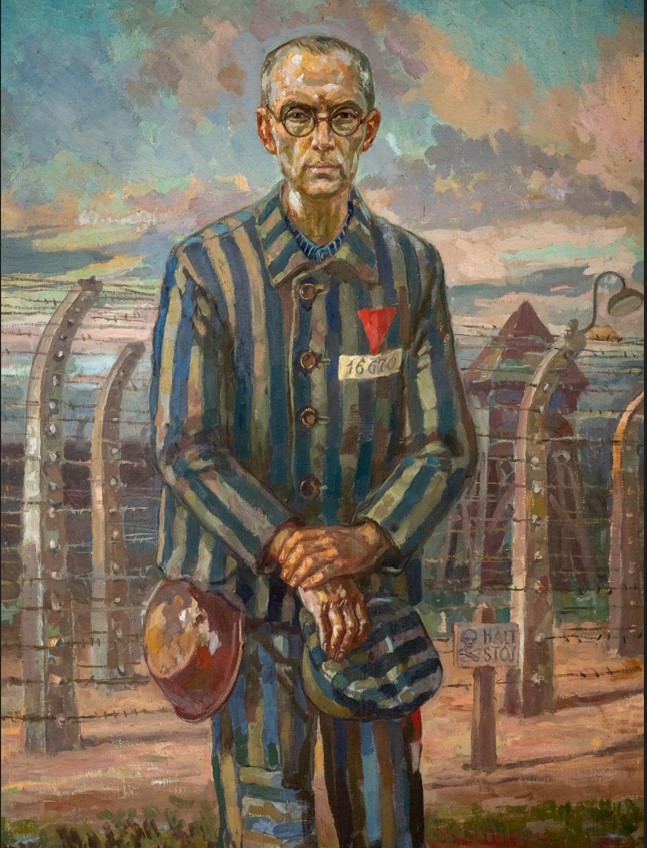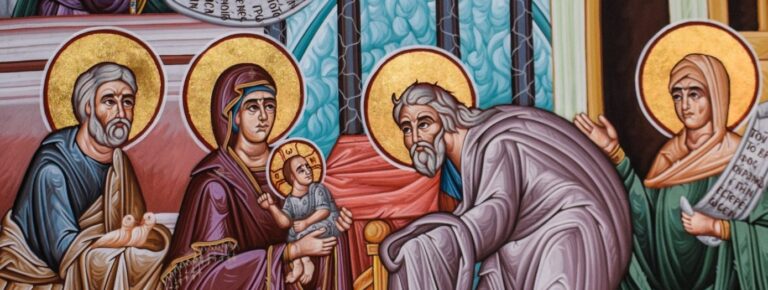
ST. MAXIMILIAN KOLBE

In the Catholic church, St. Maximilian is honoured as a confessor of the faith and a martyr of charity. He is most well known for offering to stand in the place of one of the men sentenced to starve to death in an underground bunker. These men were being sacrificed because another prisoner had escaped from the concentration camp in which they were incarcerated; their deaths would serve as a deterrent to other escape attempts.
Several accounts report a man instinctively crying out “My wife! My children!” as he heard his name announced. Not for himself – for his family. We can easily imagine that his heartfelt selflessness sparked that same spirit in Maximilian. We understand that Maximilian quickly volunteered to take that man’s place in the bunker.
Accounts note that Maximilian’s self-giving offer was readily accepted when he identified himself as a priest, and that he was promptly, sharply and publicly denigrated by his captors. Caught in their own inner prison – they could not resist speaking harshly in the face of Maximilian’s courage.
We might also ponder that none were given the mercy of a quick death. After two weeks of deprivation, he and three others still remained alive. In a desire to expedite their deaths, they were then given lethal injections.
Stories make note of the hymns and prayers that allowed these men to endure the seemingly unendurable. Stories of the kindness, care and encouragement they offered one another are worthy of imitation. Human beings allowing the best of themselves to shine in the darkness of unfathomable evil.
This patron saint of the suffering is an extreme example of how one can live with integrity in the face of injustice. We ponder how we might live out our personal invitations to suffering. We wonder how we might bring light, peace, and hope into the dark situations in our own lives.
One of the Catholic colleges named in Maximilian’s honour uses the words “courage, faith, and excellence” as their motto. Only with these graces can any of us dare to say “Here I am” when suffering calls our name. Our history is replete with the names of those who have done so.
Scripture recounts stories of those who gave their very lives in service to the greater good to which they had been called. Named and unnamed, there are many saints who said “Your will be done” when suffering called their name. Our faith is based on the One who stood in the breach between heaven and hell. Arms stretched wide, we can also stand in the gap between right and wrong, good and evil, and the lesser and the greater.
*****
We are also told that Maximilian was keenly aware of the dark depths of human weakness. We understand that he faced the painful reality of sin and struggle in his own life. He also faced sin and struggle in the excruciatingly pain-filled world around him. Maximilian certainly lived in a time when it would have been very easy to give in darkness, doubt, despair, and dread.
His life is a beautiful testimony to the promise held in these beautiful and hope-filled words. St. Paul encourages all of us:
Where sin increased, grace overflowed all the more.
Romans 8:20
Maximilian found God’s grace through the intercession of Mary. He discovered that he was not alone. He discovered a healing power far greater than any human weakness.
Heaven appeared in the form of spiritual grace. Somehow, Someone guided him. When all hell was breaking loose in that concentration camp, heaven appeared in the form of one man. Reaching deep inside his being, Maximilian found the courage to stand and offer himself.
*****
We are never alone.
Not even in an underground concentration camp bunker.
Wherever darkness, doubt, despair and dread are found, heaven abounds.
Humbly, and with confidence, we ask St. Maximilian to intercede for us.
Brenda Merk Hildebrand has a deep passion for lifelong learning, education, and spiritual and palliative care. She appreciates the opportunities that have come her way to share life’s transforming journey with others: one-with-one, through intentional group settings, in animating workshops and retreats, and by way of her writing. Brenda is a long-time contributor to Living with Christ.


